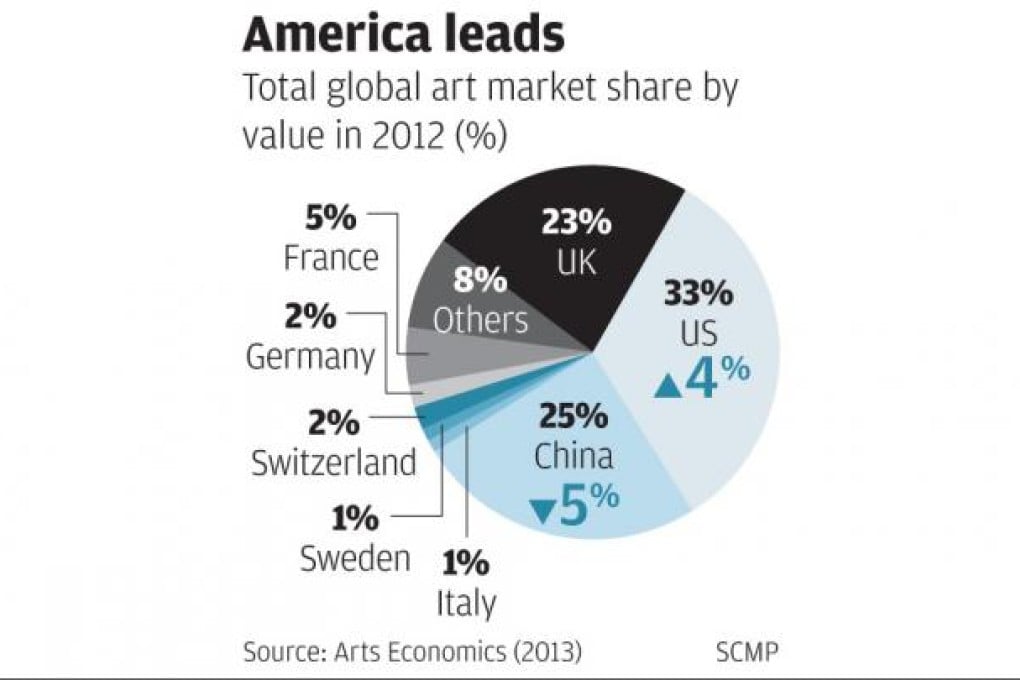Sales slump topples China as world's top art market
China is no longer the world's number one art market after its sales fell by a quarter last year, according to a recent survey. Beijing's orders to rein in speculative activities and the exposure of art buyers dodging mainland import duties contributed to the 24 per cent decline in the auction and dealer art sales values. But it is viewed as a healthy adjustment rather than a catastrophic crash.

China is no longer the world's number one art market after its sales fell by a quarter last year, according to a recent survey.
Beijing's orders to rein in speculative activities and the exposure of art buyers dodging mainland import duties contributed to the 24 per cent decline in the auction and dealer art sales values. But it is viewed as a healthy adjustment rather than a catastrophic crash.
"This is what the market needed. The growth previously was unsustainable. This gives the market a chance to mature a bit," said Clare McAndrew of Dublin-based consultancy Art Economics, which conducted the latest global art market report commissioned by the European Fine Art Foundation.
This is what the market needed. The growth previously was unsustainable. This gives the market a chance to mature a bit
The sales clocked up €10.6 billion (HK$105.4 billion), taking China's global market share from 30 per cent to 25 per cent. As a result, sales in the global art market declined by seven per cent to €43 billion from €46.1 billion in 2011.
It also meant the United States reclaimed its top position as the world's biggest art market with a five per cent rise in sales to €14.2 billion - 33 per cent of the global market share.
Britain stayed in third place with a market share of 23 per cent.
McAndrew said China's decline was "demand driven", explaining that mainlanders had less money to spend on artworks as tighter domestic monetary policy led to an economic slowdown in China.